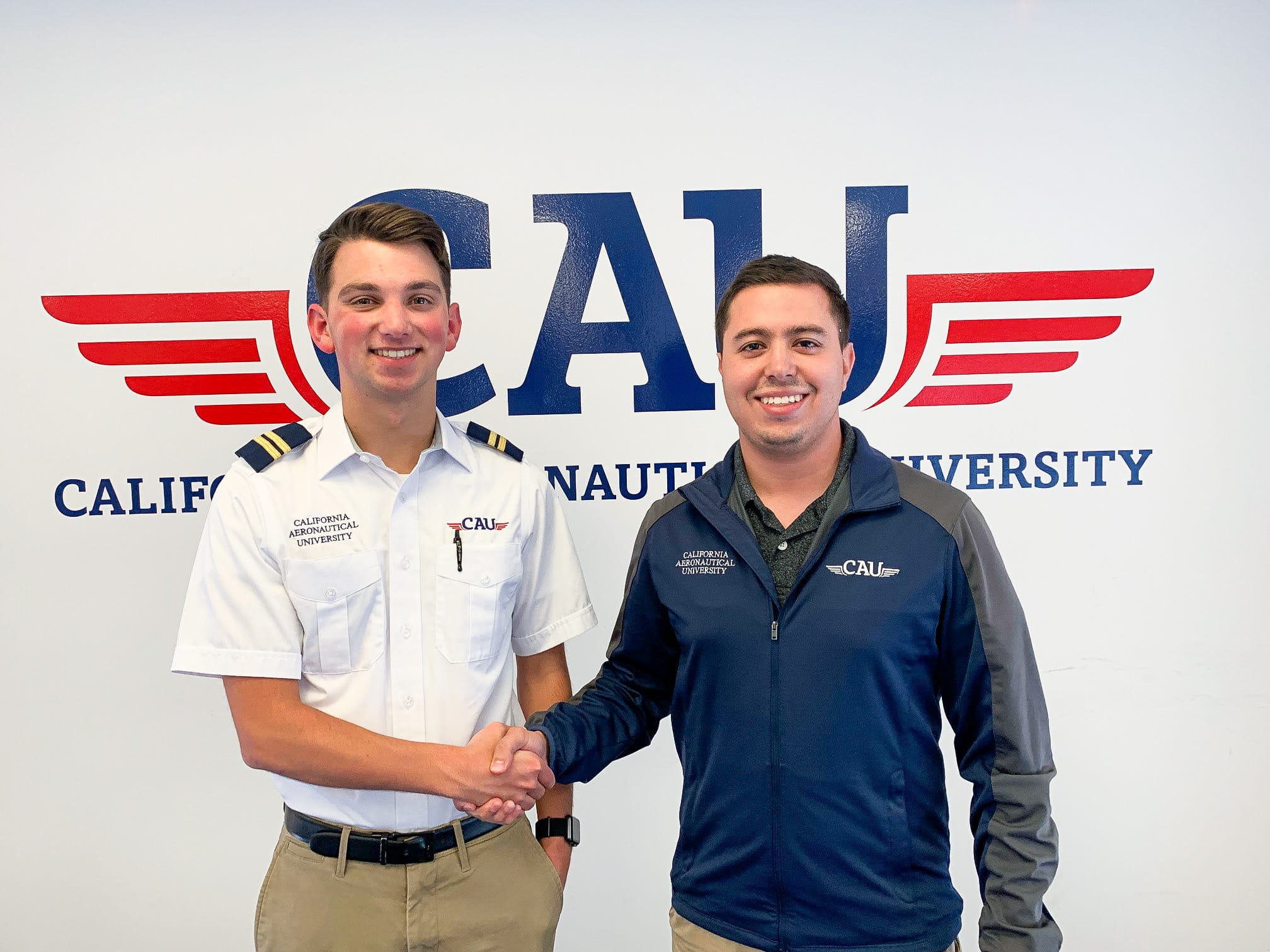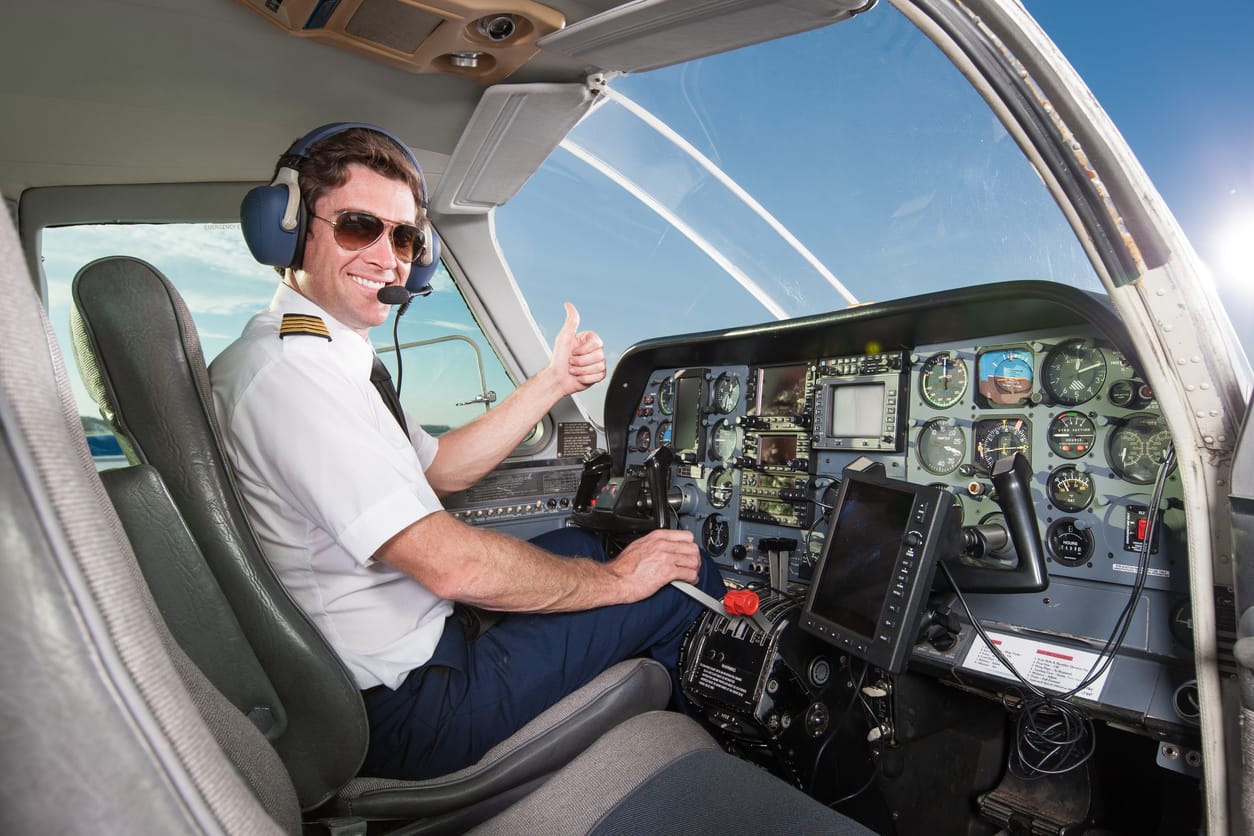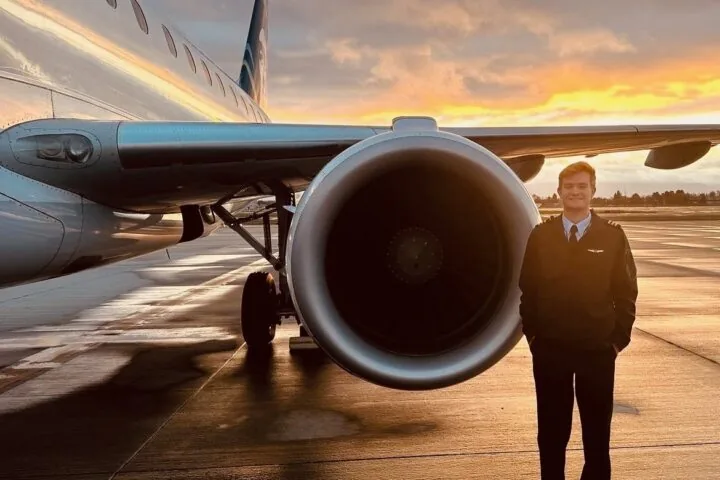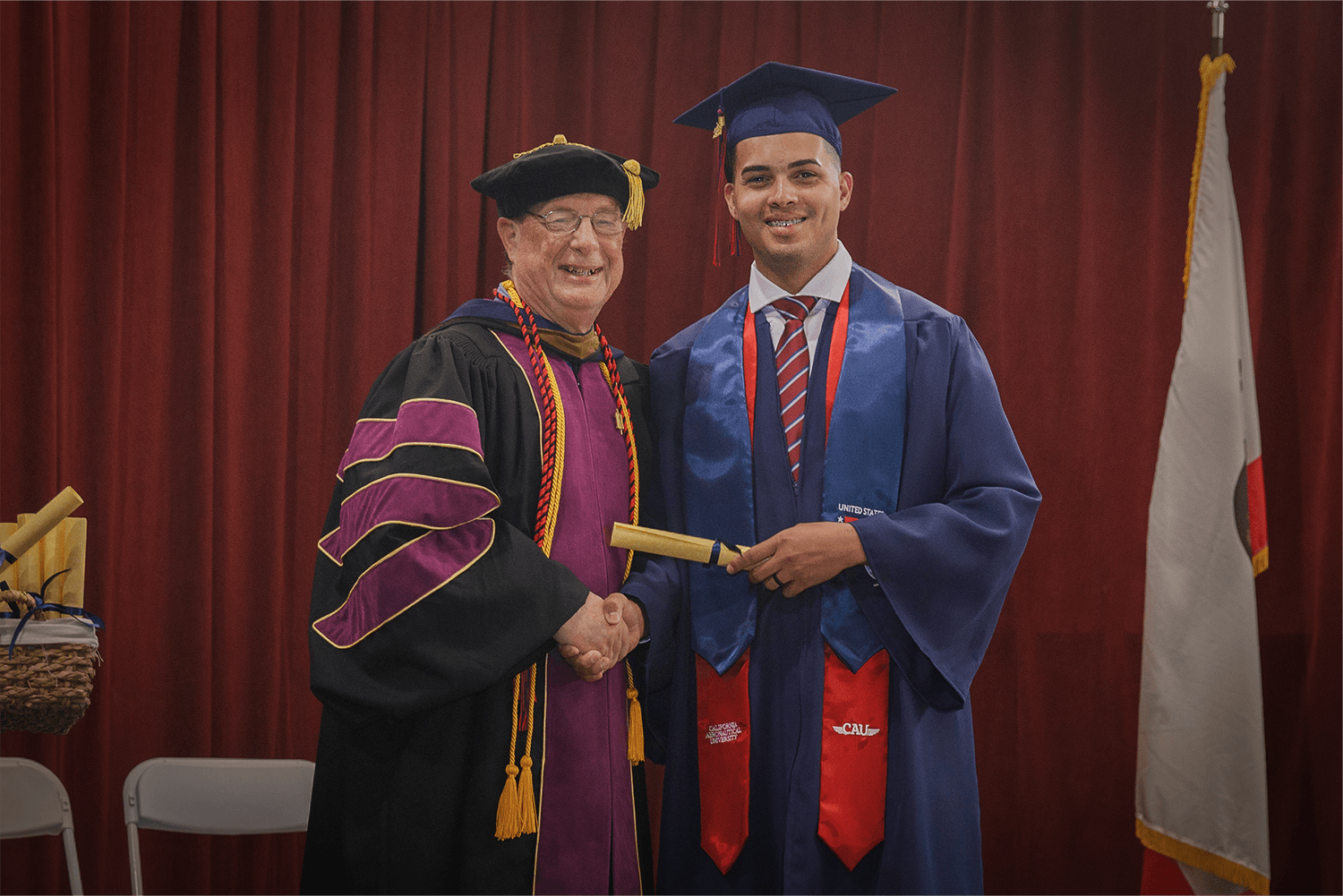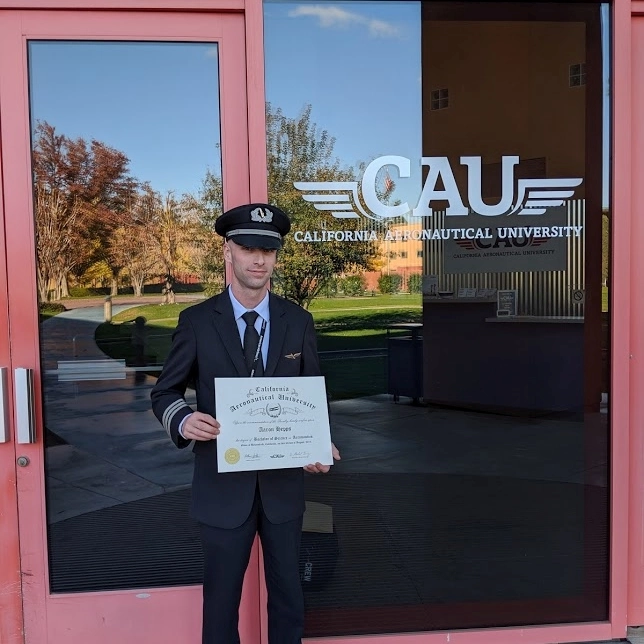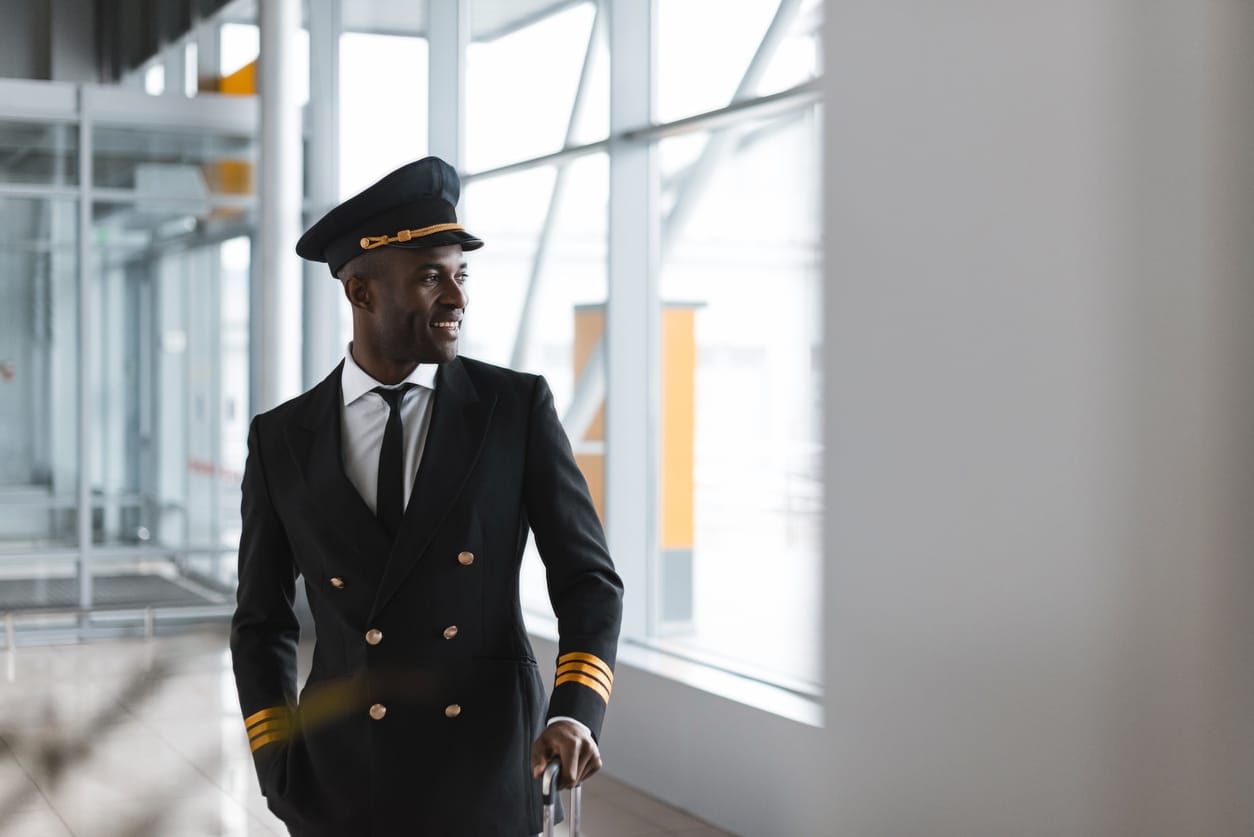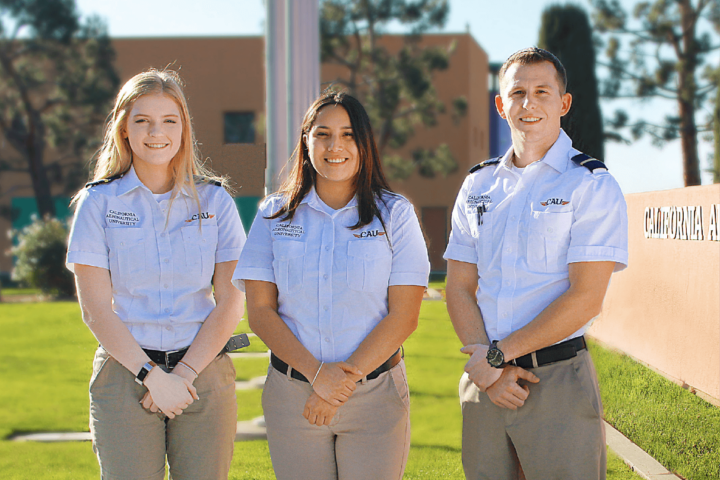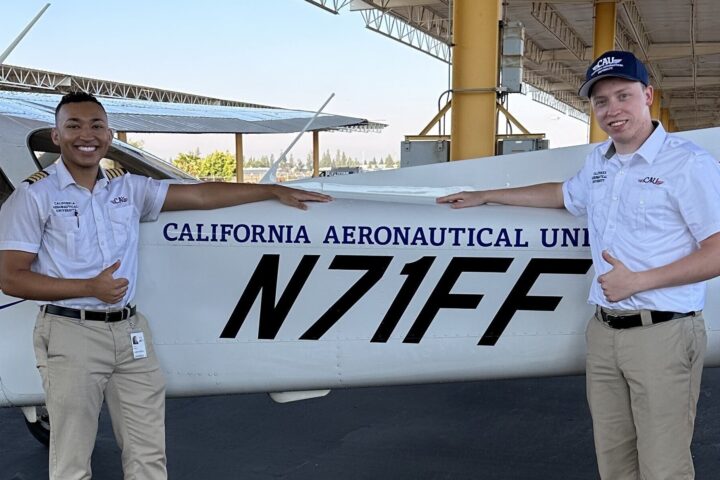After graduating from an aeronautical university, you will begin your career search, but a pilot interview is unlike any other in the business world. They involve a discussion of background, education, and qualifications and sometimes call for a technical challenge that might involve interpreting aeronautical charts or weather reports.
Pilots should prepare for job interviews armed with much more than just a resume and a power suit. Knowing what to expect from your pilot interview will help you to feel calmer and more confident.
[lwptoc numerationSuffix=”dot” title=”CONTENTS:” titleFontSize=”30px” itemsFontSize=”18px”]
Make Sure Your Logbook Is In Order
Hiring airlines, flight schools, and corporate entities typically expect pilots to show up to the interview with their logbooks. In the past, logbooks consisted of actual specialized books with long pages to note airports, dates, and special remarks. It was an utter disaster if these were lost, so pilots were forced to handwrite replacement copies or turn to copy machines or scanners to make periodic backups.
Digital logbooks that can be printed, saved to external media or hard drives, or uploaded to the cloud mean that they are more easily transportable. However, the problem then becomes the best way to share them. Should the pilot email the information? Carry it to the pilot interview on a data stick? Pull up his or her app on a phone or tablet and hand it over? Project it on the wall?
It is generally best to ask the human resources department or interviewer which format is preferred. Many pilots come armed with not only a data form of their logbook, but also a copy of a traditional book or printout of the information, in case of a data glitch were to occur.
No matter how the logbook is presented, it should be organized, up to date and accurate. Important elements such as check rides and endorsements should be easy to find. While logbook apps and programs automatically total time, these must be examined for accuracy. Paper logbooks must show totals which match the numbers presented in the various categories.
Information on Previous Employers
Even though you will almost certainly have submitted a resume online and perhaps even a form containing contact information about previous employers, it is a good idea to have it at hand for your pilot interview. Sometimes you are presented with paperwork to verify this information. Other companies ask for a separate paper resume and application even after you have submitted one online.
In any case, it is not a good look to go fumbling through your contacts (assuming your phone or tablet is charged) if this information is requested of you. It is even worse to be reduced to pulling up a search engine to find basic contact data on a former boss or reference. Although it is not probable that this will come up during the employer interview portion of your appointment, it does happen.
It is more likely that you will be asked why you left a recent job, or why you have gaps in your employment history. Prepare for these questions. Be honest, but do not speak poorly of former employers, even if you did have a negative experience. Such phrases as “We had a different view of how to best serve the passengers” or “I felt it was time to gain experience elsewhere” can professionally communicate the same material without creating an uncooperative impression.
Think About Failed Check Rides and Areas for Improvement
Most pilots have at least one botched check ride in his or her past, particularly early in their careers. It is true that some positions and companies almost never hire pilots with more than one or two failed check rides, but this could change as the airline industry recovers from COVID-19 restrictions and the worldwide pilot shortage comes back into play.
Even without these external conditions, job applications are a good opportunity to think about what you might have learned from a failed check ride. In day to day life, realizations such as these usually do not surface, because we rarely take the time to consider them. However, reviewing failed check rides, especially those which took place some time ago, forces you to not only take a more dispassionate view of what happened, but how you have used this experience to improve as a pilot and even as a person.
Displaying Professional Growth
In the immediate wake of the feelings of anger, frustration, embarrassment, and disappointment, it can be difficult to find the good in the event. But looking back as a result you may have become a more detail-oriented pilot, learned to make decisions more smoothly, or react to stress more efficiently.
Above all, as in discussing past employers and jobs, it is best not to place blame externally, even if you did in fact perform well and for some reason failed anyway. Angry exclamations such as “That check pilot had it in for me,” “They tested me on something I was never taught,” and “I just have bad luck on check rides” do not reflect well on your character.
It is unwise to lie or cover up failed check rides during your pilot interview. Employers can access Federal Aviation Administration (FAA) records which detail a pilot’s entire career where check rides are concerned. Assume the potential employer has this information.
Brush Up on Basic Pilot Technical Information
The good part about automatic flying aids is that they make a pilot’s life easier in the cockpit. The challenging part about automatic flying aids is that they can make a pilot’s life more difficult in the interview room.
Overreliance on GPS, weight and balance calculators, and navigational aids can erode a pilot’s basic skills. Not only is it safest to know how to calculate this information by hand, as well as how to read a paper navigational chart and other basics, you might find yourself confronted with the challenge to do so on the spot in the middle of a stressful job interview. Study for your pilot interview as you might have for your first FAA written exams.
Ready to soar in your aviation career?

Tamu Smith-Kohls serves as the Vice President of Enrollment Management and Marketing for California Aeronautical University. She has worked in the aviation industry in various roles for 24 years. As a United States Air Force retired veteran, she has a unique appreciation for the aviation industry. Tamu has served in Information Systems as a Network Administrator, Aerospace Flight Medicine as a Health Services Manager, and Air Force Recruitment and Marketing. She holds an undergraduate degree in Psychology; a Master’s in Business Administration and is a Certified Neuro Linguistic Practitioner. Her passion is motivating, training, coaching and serving others to reach their best potential.
